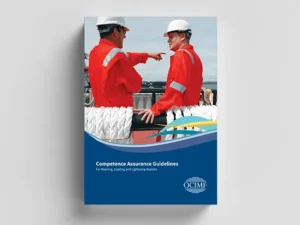OCIMF

 Address: 29 Queen Anne's Gate London SW1H 9BU England
Address: 29 Queen Anne's Gate London SW1H 9BU England
 Phone: +44 (0) 20 7654 1200
Phone: +44 (0) 20 7654 1200
 Website: https://www.ocimf.org/
Website: https://www.ocimf.org/
 Membership: Organizations
Membership: Organizations

Description
History
The Oil Companies International Marine Forum (OCIMF) was formed in April 1970 in response to growing public
concern about marine pollution, particularly from oil, following the Torrey Canyon incident in 1967.
In the early 1970s, a variety of anti-pollution initiatives began to emerge at national, regional and international levels,
but with little coordination.
Through OCIMF, the oil industry was able to play a stronger coordinating role in response to these initiatives, making its
professional experience widely available through cooperation with governments and intergovernmental bodies.
OCIMF was granted consultative status at the IMO in 1971 and continues to present the views of its members at the IMO.
meetings. Since then, its role has expanded to take into account the changing maritime activities of its members. It is
The mandate now covers safety, health, security and the environment in relation to tankers, barges, offshore vessels and terminals.
interfaces.
About OCIMF
Today, OCIMF is widely recognized as a leader in the global marine industry in promoting safe and environmentally friendly technologies.
responsible transportation of crude oil, petroleum products, petrochemicals and gas, and promoting the same values in management
of marine-related marine operations. Membership is expanding and includes all major oil, gas, petrochemical and marine companies.
world’s largest energy company along with most national oil companies and many independent oil and gas companies.
companies.
OCIMF has much to be proud of. Not only has it contributed to a substantial amount of regulation at the IMO, aimed at
improve tanker safety and protect the environment, but has introduced important new guidance on
current and pressing issues such as cybersecurity and human factors. With the process of introducing new products internationally
Accepted regulation is necessarily slow as it cuts across many countries and individual jurisdictions, OCIMF is in a unique position.
position to be able to leverage the experience of its members to move forward with much-needed guidance on
important industry issues. This provides the means to improve practices among members and in the industry at large.
and serves as a valuable reference for the development of regulation.
In addition to its extensive library of publications, OCIMF has a rich portfolio of tools including its Ship Inspection Report.
(SIRE), the Tanker Management and Self-Assessment Tool (TMSA), the offshore ship inspection database
(OVID) and the Maritime Terminal Information System (MTIS), all of which have gained worldwide recognition and
acceptance.




